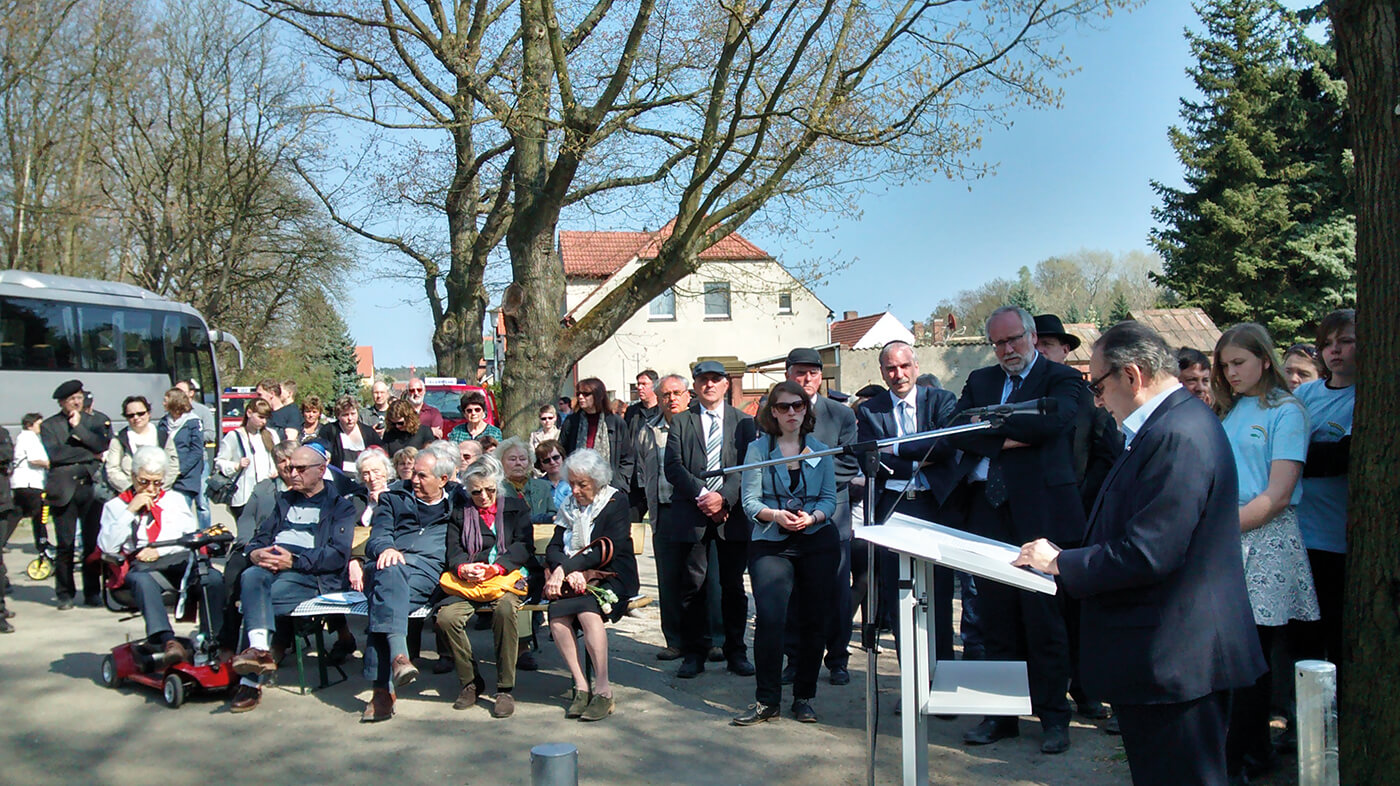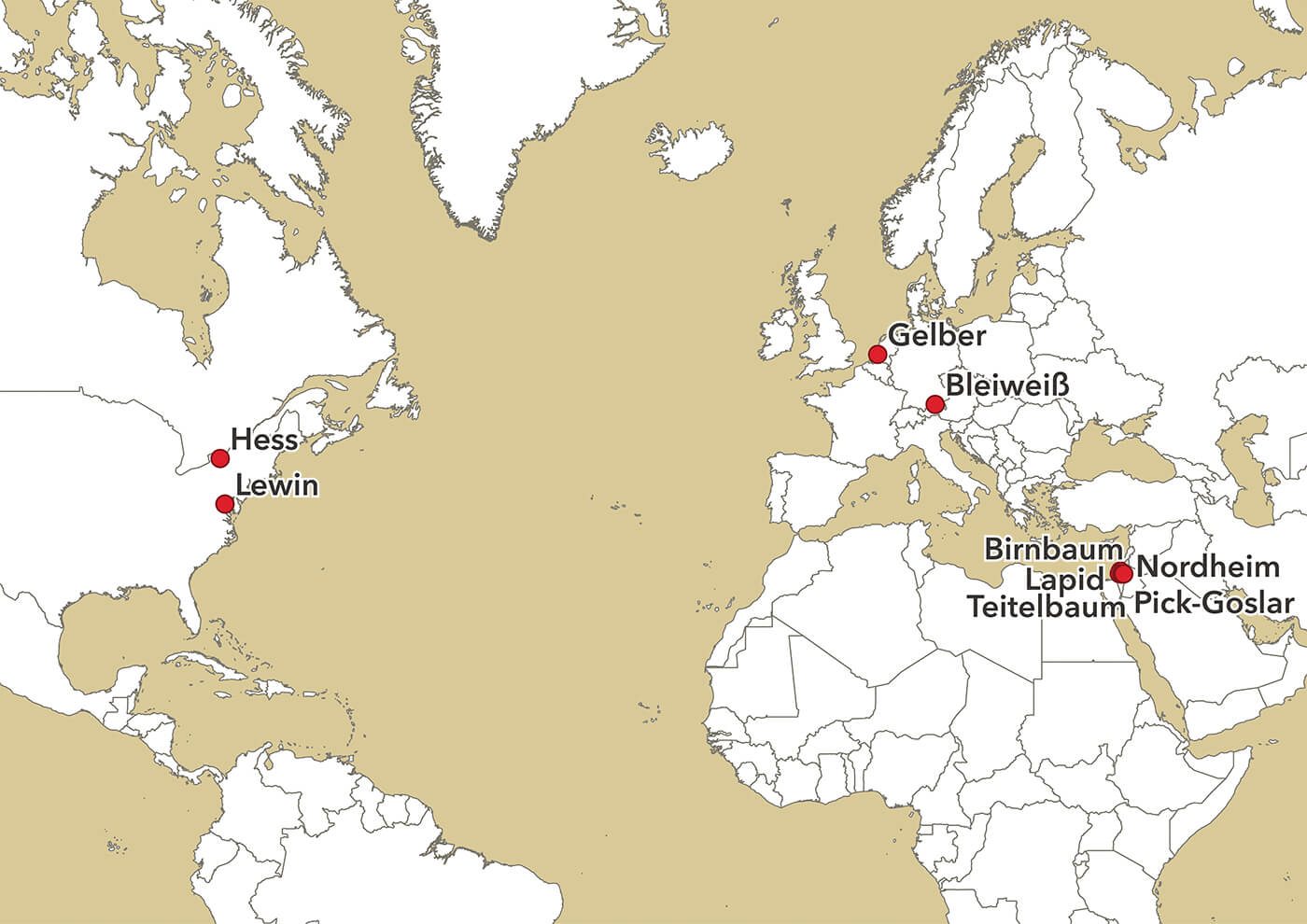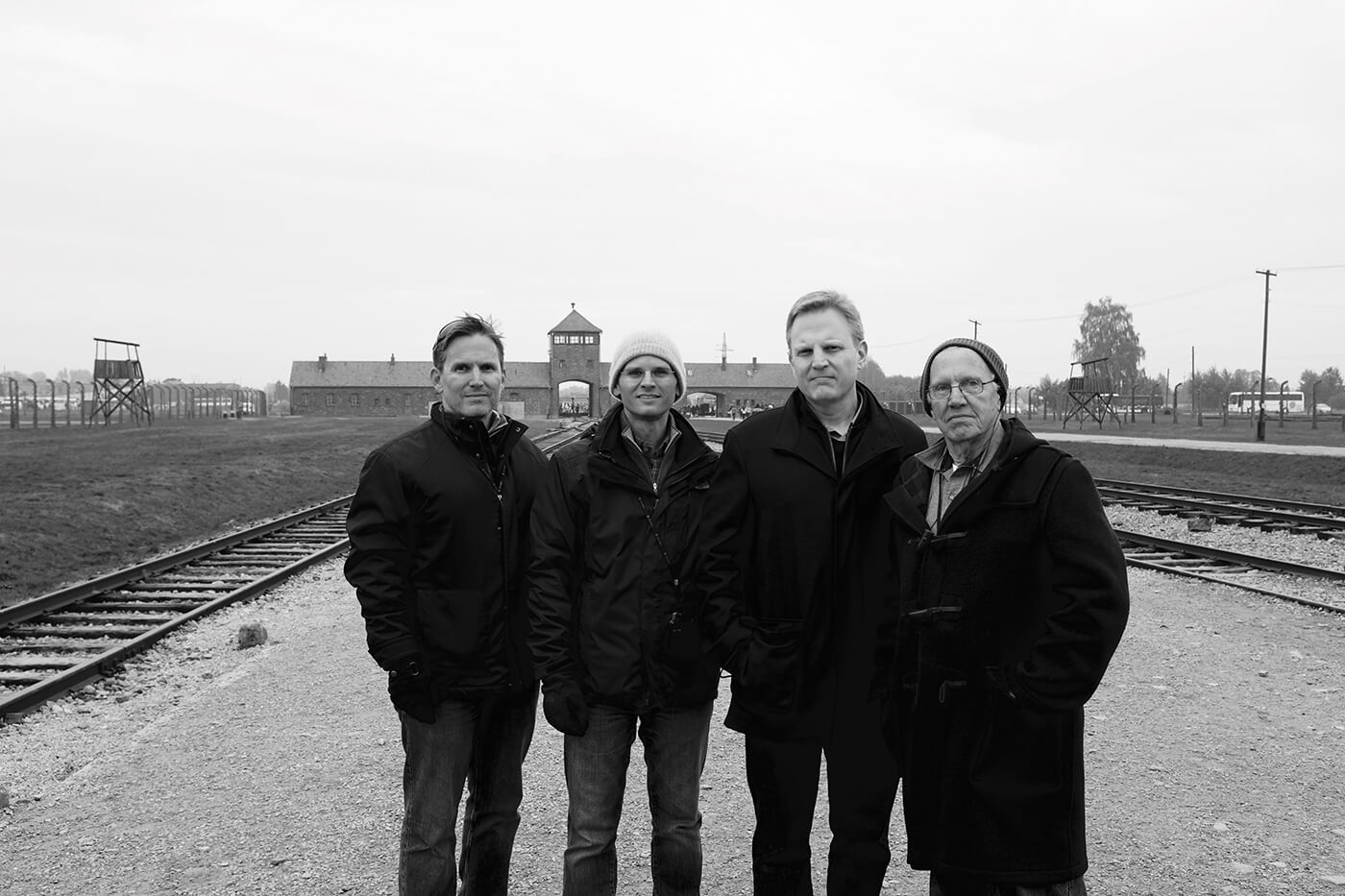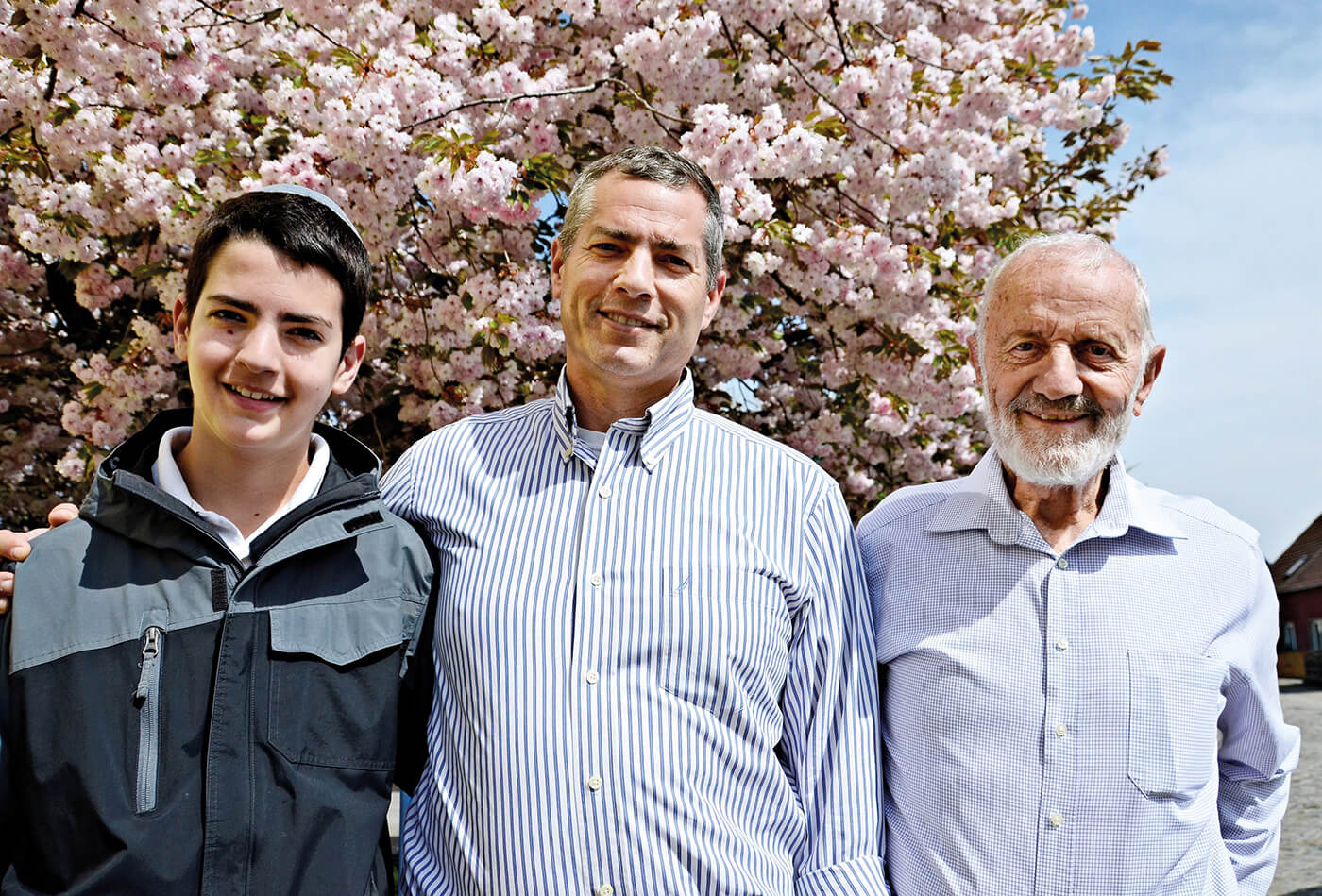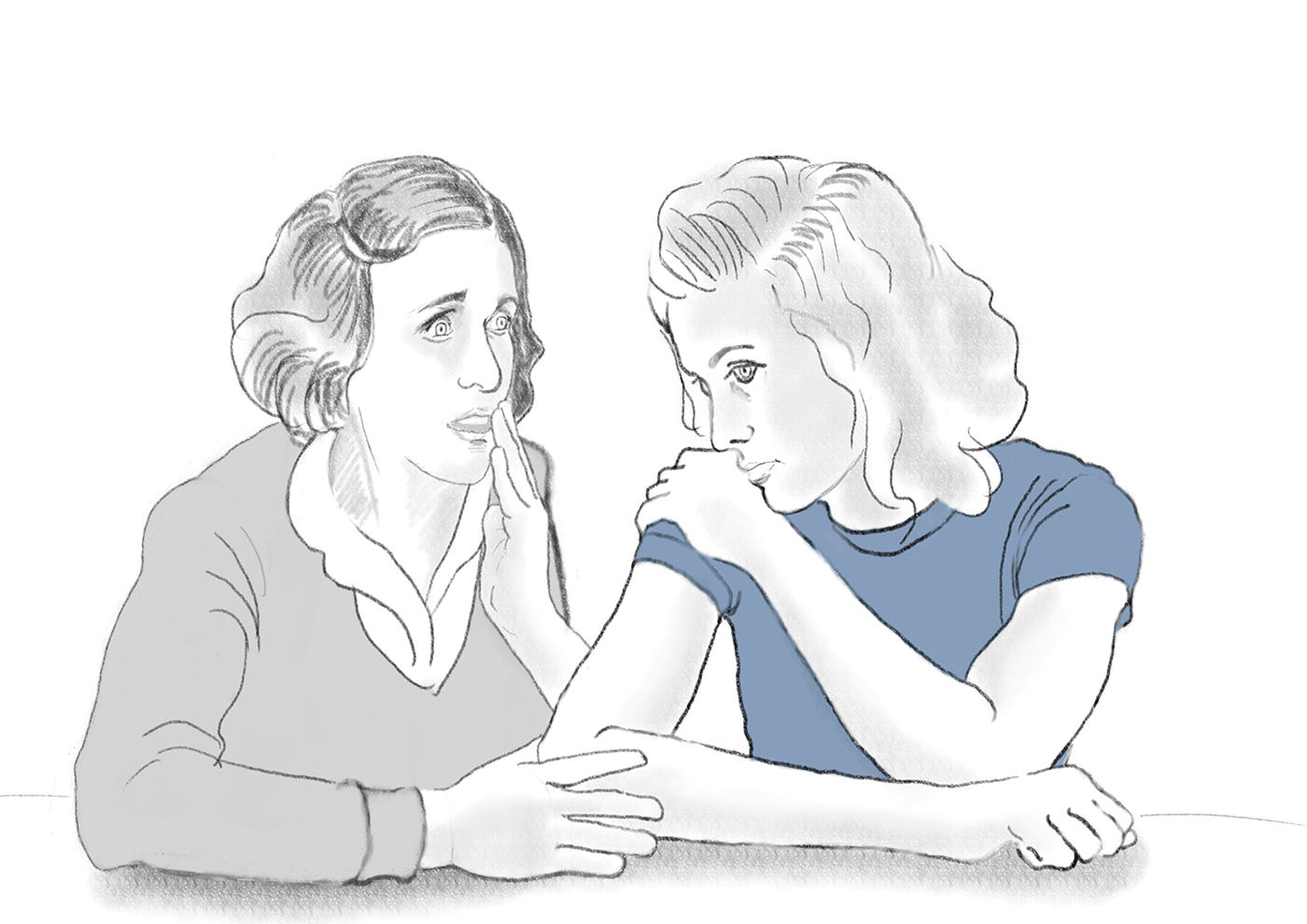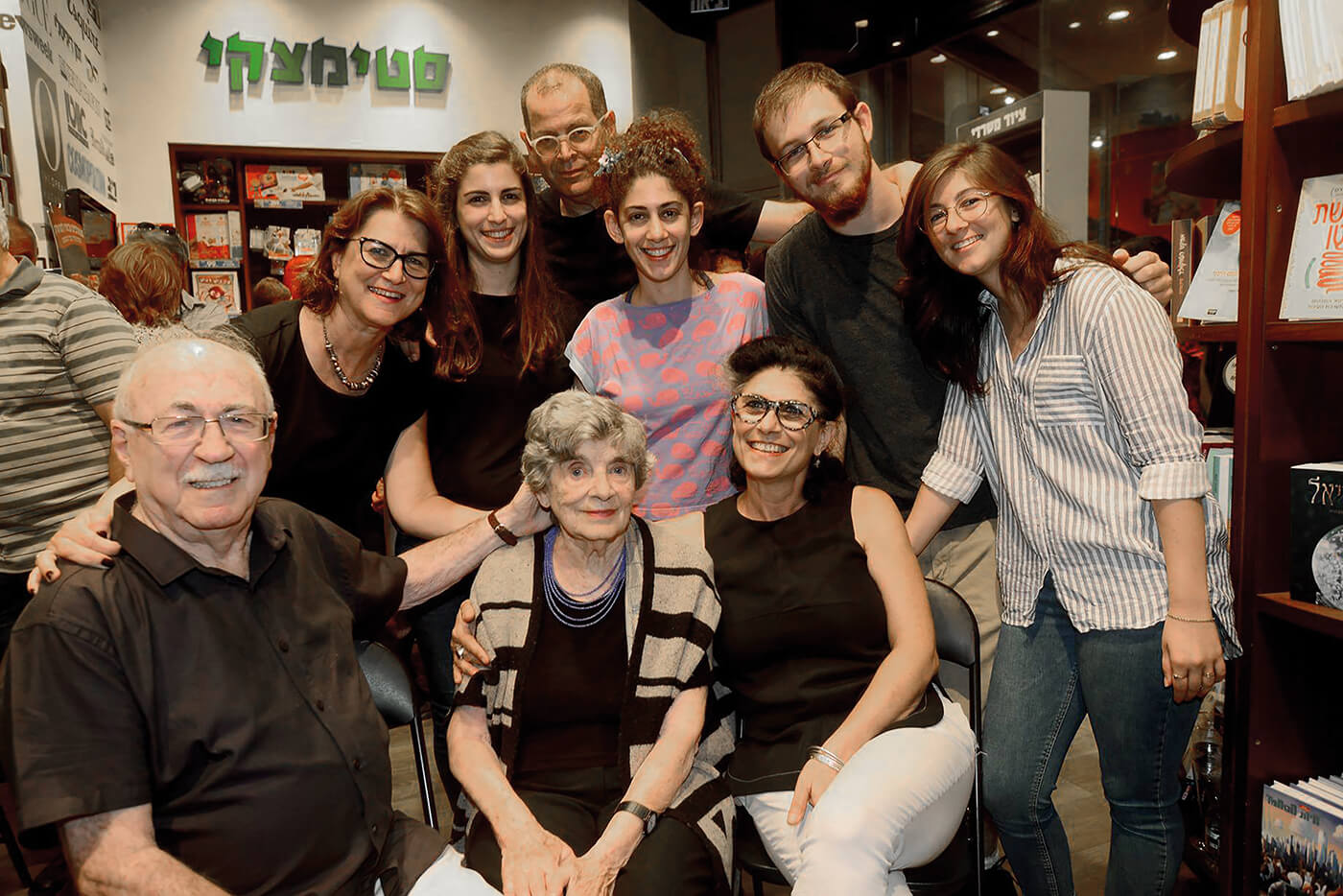“Where could we go? We felt like strangers.”
Moshe Nordheim, in 1945 eleven years old, 2004
Return to the old life?
After the liberation, survivors were brought back to the last place where they had lived. But their old life no longer existed. Family members and friends had been murdered, property stolen. They were homeless. Many survivors tried to emigrate to Israel or the USA. They hardly spoke about the past; now the important thing was to build a new life. The children were supposed to get used to a normal life and yet many people could never forget the memories of the horrors. For many survivors, Tröbitz remains the place of their liberation or the final resting place of their family members.
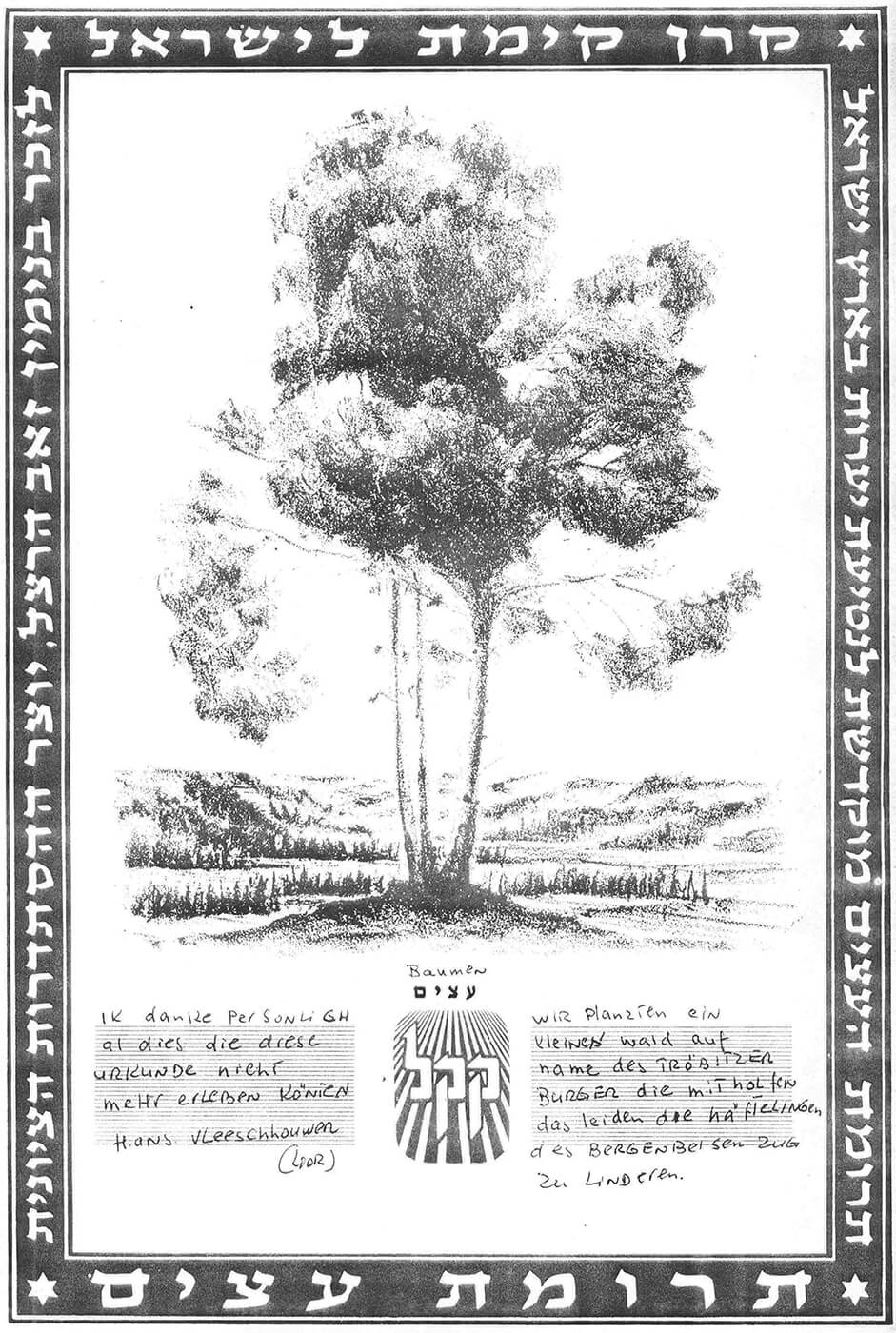
Since 1992 a grove in Israel is dedicated to the approx. 320 Jews who died in Tröbitz. In 1993, the survivor Hans Vleeschouwer had 26 more trees planted for the 26 villagers of Tröbitz who had died after being infected with typhus while caring for the sick survivors.
"After all we went through, we were no longer children. We were adults, we thought like adults and talked like adults."
Moshe Nordheim, 2004
"We didn’t speak much about it."
Raul Teitelbaum, in 1945 fourteen years old, 2002
"… I didn’t want to keep my mouth shut."
Moshe Nordheim, in 1945 eleven years old, 2022
Child survivors and the past
Jewish children and young people make up a small group among the Holocaust survivors. It was only 30 years after the Holocaust that the long-term effects of the experiences of persecution specific to children were acknowledged. Since the end of 2014, child survivors can receive a small financial recognition. Today they are at an age when the traumatic experiences of their childhood return to their memory even more strongly. The remembrance of the Holocaust has never left them. Many of them have only recently begun to speak about it. Others are actively involved as eyewitnesses against forgetting.
"After our return … our parents tried to lead a normal life again, as far as that was possible. They saw it as their task to help us to come to terms with the past and to convince us that this horrible experience was not part of normal life."
Micha Gelber, in 1945 ten years old, 2001
"I knew no other reality than that of the camp. One day my first girlfriend in the USA told me about the death of her grandfather and the extensive preparations for the funeral. I said to her in complete earnestness that America must be a very rich country if only a single person is buried. In the Jewish religion, individual persons are not buried. Instead, they wait until there are thousands of dead people and then throw them into a ditch."
Marion Ein Lewin
Life thereafter | Video 4:26 min
"… I never want to become a victim — no matter of whatever."
Mike Hess, son of Steven Hess, 2021
The children and grandchildren of contemporary witnesses
Child survivors later started their own families, becoming parents and grandparents themselves. However, many survivors spoke very seldom with their own children about the persecution. Nevertheless, the lives of the subsequent generations have been influenced in many ways by the experiences and traumas of their parents, grandparents and great-grandparents. For instance, the children of survivors often try to protect their parents. Many of the grandchildren are better able to speak with their grandparents about the time of the persecution. It is a common experience that many descendants want to be strong.
"I am the daughter of a survivor. My father taught me not to let hurtful feelings like grief get to me, because he himself cannot bear them."
Iris Teitelbaum, daughter of Raul Teitelbaum, 2022
"Radicalism is bad, always and everywhere. Everyone should be heard. And it is about keeping the balance. We must do everything in our power to prevent radical developments."
Ronni Raveh, granddaughter of Moshe Nordheim, 2022
"We always tried to protect our parents. I never told them how sick I was. I didn’t want them to worry."
Iris Teitelbaum, daughter of Raul Teitelbaum, 2022
"One of the most important things that Grandmother passed down to us is that all people are to be seen as equal. No matter whether Jew or Arab, whether devout or not — they are all people."
Rotem Lapid, grandson of Mirjam Andriesse-Lapid, 2022
"No matter what happens, regardless of how bad it is, it is up you."
Tal Meir-Prager, granddaughter of Hannah Pick-Goslar, 2022
